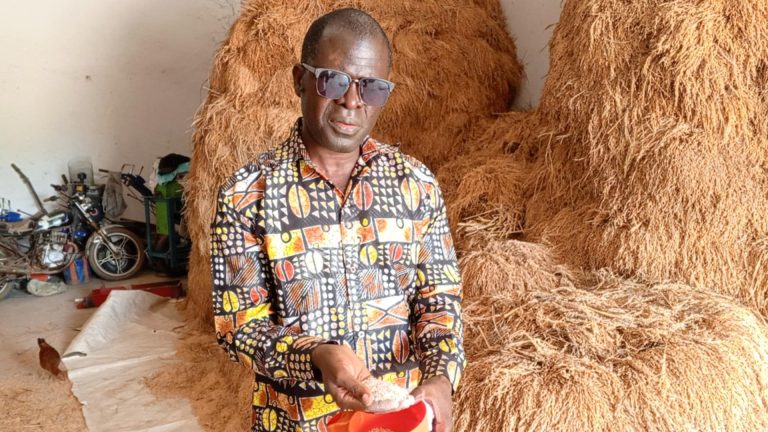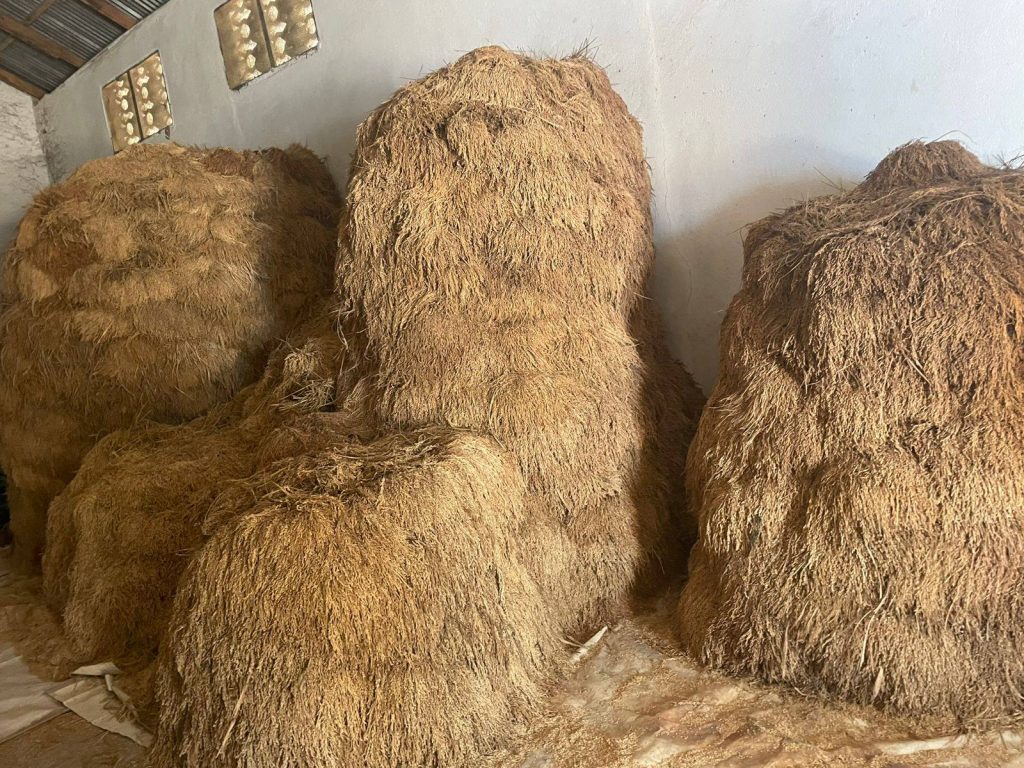Posts Categories
Latest Posts

(Garmu, Bong County – January 20, 2025)-The Executive Director of the Environmental Protection Agency (EPA) of Liberia, Dr. Emmanuel Urey Yarkpawolo has called on Liberians to embrace lowland rice farming as a sustainable solution to protect forests, reduce dependence on imported food, and strengthen the economy. He also appealed to major buyers, such as Mary’s Meals, the World Food Program (WFP), and other stakeholders, to purchase rice from local farmers to help them reinvest in their farms and improve their livelihoods.
Dr. Yarkpawolo made these remarks over the weekend during a visit to Garmu in Panta District, Bong County, where he met with the Kwapageh Cooperative. The cooperative has been leading efforts in lowland rice farming and is showcasing a promising model for sustainable agriculture.

“I am deeply impressed by the work being done here,” Dr. Yarkpawolo said. “This cooperative is not just growing rice—they are demonstrating how we can protect our forests, build food security, and create better futures for our families. Lowland farming aligns with the President’s ARREST Agenda, which prioritizes agriculture and environmental conservation.”
While lauding the efforts of the cooperative, Dr. Yarkpawolo emphasized the need for more buyers to step in and support local rice producers. He urged organizations such as Mary’s Meals and WFP, as well as individuals and businesses, to purchase rice from the Kwapageh Cooperative.
“Farmers need reliable buyers to thrive,” he stressed. “When you buy from them, you empower them to reinvest in their farms, educate their children, and build better lives. We must all work together to support these hardworking Liberians.”
The cooperative, which began in 2012 with support from the WFP, has cultivated 11 of its 69 hectares of land for lowland rice farming. Dr. Yarkpawolo praised their dedication and bought rice from them to show his support.
For his part, Francis T. Pilawoe, Chairman of the Kwapageh Cooperative, reflected on the group’s journey, acknowledging the government’s recent support through Liberia’s Agriculture Minister, Dr. Alexander Nuetah.
“This is the first time we’ve received such significant backing from the government,” Pilawoe said. “It has made a big difference in what we’re able to achieve. Minister Nuetah has empowered us by ensuring that the rice we produce belongs entirely to us, giving us the freedom to grow and sell independently.”
However, Pilawoe pointed out their biggest challenge: finding buyers for their rice.
“Without buyers, it’s hard to move forward,” Pilawoe explained. “We’re appealing to the government, businesses, and organizations to buy locally grown rice. This support would not only keep us farming but also reduce Liberia’s dependence on imported food.”
Both Dr. Yarkpawolo and Pilawoe underscored the importance of agriculture as a path to economic and environmental sustainability.
“Agriculture is not just planting seeds—it’s securing a future for our children and our country,” Pilawoe said.
Dr. Yarkpawolo echoed this sentiment, emphasizing that lowland farming provides a win-win solution for Liberia’s economic and environmental challenges.
“We must farm smarter, not harder,” he said. “Lowland farming is the way forward for a greener and more prosperous Liberia. Supporting local farmers ensures we can protect our environment while strengthening food security.”
Dr. Yarkpawolo reaffirmed his commitment to promoting environmentally friendly agriculture and encouraged policymakers, businesses, and communities to rally behind initiatives like the Kwapageh Cooperative.
“When we invest in our farmers, we invest in our nation’s future,” Dr. Yarkpawolo concluded. “Let’s come together to support lowland farming and build a Liberia that is self-reliant, greener, and thriving.”
